Knowledge, Instinct, and Self-Understanding: Basic Parenting Tips | By Dr. Tina Bryson

There’s plenty of advice available on parenting, but there’s no one Parenting Rulebook that answers all parenting questions. In fact, it’s helpful to have a handful of different strategies and approaches, and to keep in mind that your approaches should evolve as you mature as a parent, and as you approach each new phase of childhood. It’s almost always problematic when parents rigidly adhere to any one philosophy.
My overall suggestion? Combine knowledge, instinct, and self-understanding.
Knowledge
Knowledge is definitely power, and parents usually find it useful to have a few strategies to help them deal with their children. Simply by reading and talking to other parents, you can arm yourself with all kinds of tools and approaches to help you more easily manage your children and the role of parenting in a way you feel good about.
Knowledge is also powerful when it comes to dealing with developmental phases and challenges, from the early newborn days all the way through adolescence. When a new mother becomes frustrated because her six-week-old is nursing every hour all day long, a part of her may begin to resent the infant because of this loss of freedom. However, if she were to read a bit about newborns and their growth patterns, she’d discover that during a growth spurt, a baby will often “cluster feed” for a week or two. An understanding of this important phase in her son’s life can help the mother be much more patient and understanding, even if she continues to feel a bit frustrated about the amount of time she’s spending nursing.
The same would apply to a toddler. A father can address the tantrums of his two-year-old much more lovingly and effectively if he has an understanding of what this phase means for his daughter (that one of her most important jobs at this age is to discover and assert her own independent self). Again, his frustration (and even anger) may still be there, but the father can handle those emotions much better if he can understand that his daughter is in the process of claiming her own personhood and testing to what extent she is actually separating from her parents.
The basic idea is that knowledge can help you view parenting struggles as opportunities to know your children better and to help them through difficult times. It doesn’t mean that you won’t get frustrated; but good information can make all the difference in your perspective. The more we can understand our children and learn about their process of development, the better prepared we’ll be to guide them along their journey toward healthy adulthood.
Instinct
Be wary of any parenting approaches that offer an “all or nothing” mentality or that seem extreme. Certain “parenting gurus” will present THE ONE WAY to get babies to sleep through the night, or THE ONE WAY to get your teenager to make straight-A’s. But most of the time, moderation and a combination of different approaches produce the best results. Listen to lots of experts (and non-experts), and then pick and choose different aspects of different approaches that seem to apply best to your situation.
Again, knowledge is power. But don’t give up your own power to make decisions that are best for your children, yourself, your marriage, and your family. Gather all the information you can, and then use your common sense and your instincts to make a decision that feels right. You know your child better than anyone. Think about how your child might experience the situation and respond to your child’s needs. Your instincts will usually tell you to respond to your child’s needs, and those instincts are there for a reason—that’s what your child requires most from you: that you’ll trust that his needs will be recognized and responded to quickly and consistently.
Self-understanding
The science from a number of fields shows that parents’ own experiences in their lives strongly influence how they react and parent. This is a double-edged sword. Our positive and nurturing experiences influence our parenting, but our negative and painful experiences affect us as well. The nurturing we’ve received in our lives will be passed on to our children in the way we interact with them. But the pain we’ve experienced can cause us to react in ways that don’t really make sense, so that we end up parenting in ways that we aren’t really happy with.
For this reason, it’s important that parents do all they can to understand themselves as fully as possible. Self-awareness can lead to emotional and mental health. And the more emotionally and mentally healthy you are, the more present you’ll be able to be for your kids, and the more fully you’ll be able to love and nurture them in the everyday moments of life. (Dan Siegel and I wrote an article about this idea for the PBS series “This Emotional Life.” Click here to see it.)
Remember, also, to take care of yourself and your marriage and your other relationships. Avoid focusing so much on parenting well that you neglect your own emotional and physical health. For your children to fully flourish, they need parents who are flourishing too, nurturing themselves and their relationships.
Read more from Tina Bryson on PsychAlive
Read more from Dr. Tina Bryson at http://tinabryson.com/
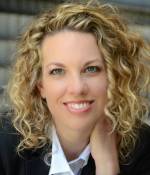
Dr. Tina Payne Bryson is a psychotherapist at Pediatric and Adolescent Psychology Associates in Arcadia, California, where she sees children and provides parenting consultations. She speaks to parents, educators, and clinicians all across the country, and she has written for numerous venues, most recently the PBS series “This Emotional Life.” She also co-hosts a web-based parenting show called The Intentional Parent.Tina is also the author of “The Whole Brain Child” A Revolutionary Parenting book co-authored by Dr. Dan Siegel. Read more from Dr. Bryson on her website, http://tinabryson.com/.




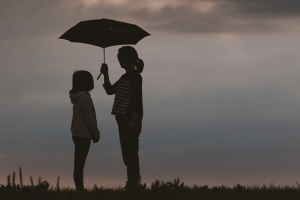


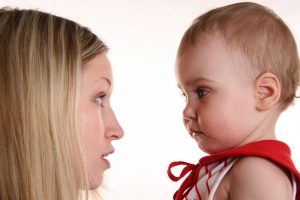
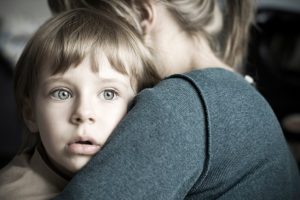
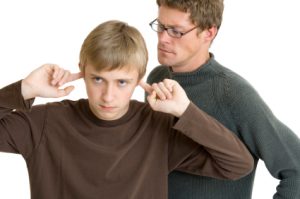
I don’t know…I’d be ieetrestnd to hear what Dina Lohan has to say so I can be sure to always do the exact opposite.